These Are The 6 Different Ways To Make A Supernova
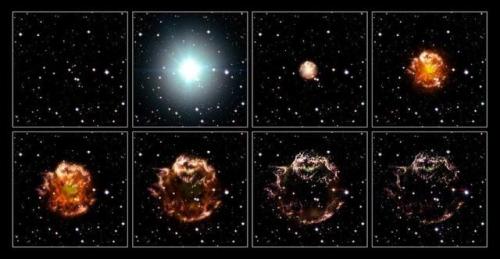
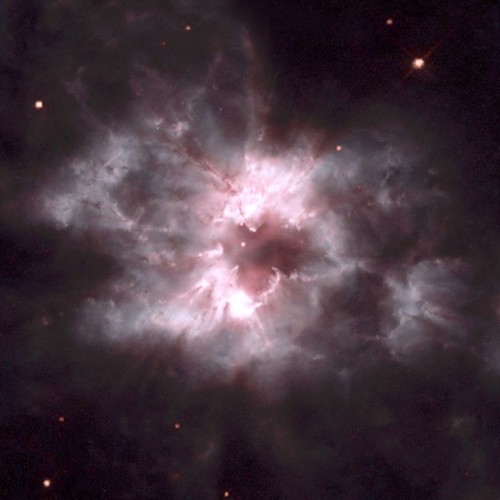
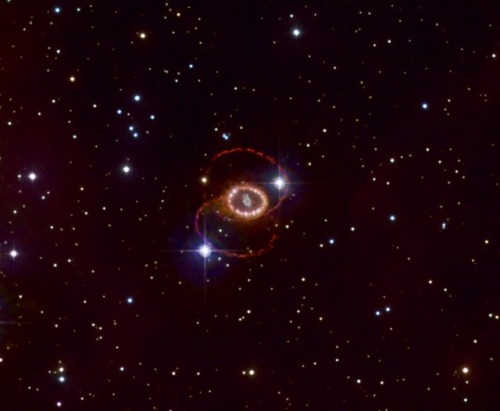

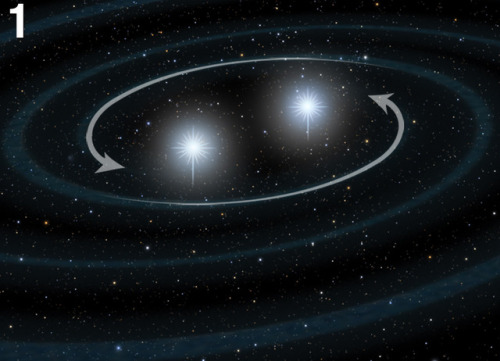
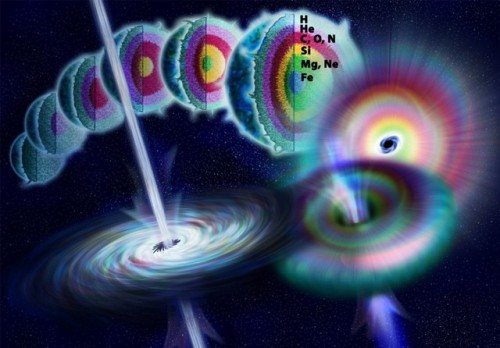
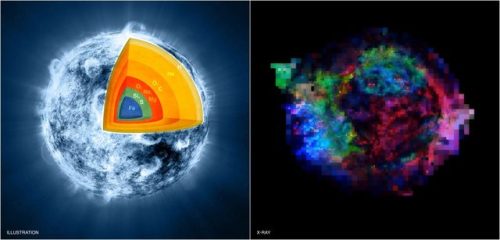
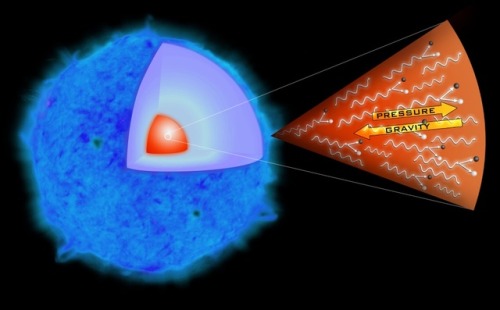
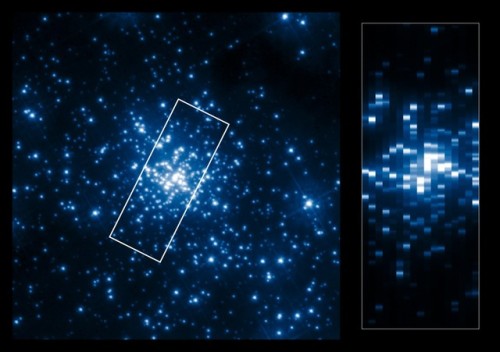

These Are The 6 Different Ways To Make A Supernova
“Yet, if you cross a certain mass threshold, you overcome that quantum barrier, and that triggers a runaway fusion reaction, destroying the white dwarfs and leading to a different class of supernova: a thermal runaway supernova.
So, we’ve got core collapse supernovae and thermal runaway supernovae. Does that mean that there are only two classes?
Hardly. There’s more than one way to make both a thermal runaway and a core collapse supernova, and each mechanism or method has properties that are wholly unique to it. Here are the six ways to make a supernova, starting with the least-massive trigger and going up from there.”
So, you’ve got a star, and you want to trigger a supernova with it? Great! Every star that ever gets made in the Universe has the possibility of going supernova. If your star is born with more than about 8 solar masses, it’s practically an inevitability that a supernova will ensue, and that it will be a core-collapse supernova at that. But there are four independent ways to make that happen, and only one of them is the conventional way you probably think about it. If your star has less than 8 solar masses, though, it ends its life in a white dwarf, but that’s not necessarily the end. White dwarfs can gain enough mass, through two different known mechanisms, to someday go supernova as well.
There are six different ways to make a supernova, and each one is spectacular. Which one is your favorite?
More Posts from Astrosciencechick and Others

NGC 3576, Statue of Liberty Nebula
I’ll never tell 🤭
space edition - tag yourself
moonlight: sleep deprived af, genius ideas at 2:00 am, constantly underestimated, tangled earbuds, pretends like they don’t care but actually cares a lot, unscented candles
comet: will fight you for their friends, perfect eyeliner, doesn’t get angry but instead just fucking glares at you until you crumble, loves thunderstorms, cat person
stars: has no idea what they’re doing 167% of the time, artsy, likes halsey, string lights everywhere, loves fuzzy socks and blankets, probably wears space buns
alien: secretly is super good at makeup but doesn’t wear it often, lots of coffee, probably has a pet fish, reads young adult fantasy novels, closet conspiracy theorist, arms and papers always covered in doodles
black hole: 97% of their wardrobe is hoodies, professional procrastinator, can write, probably owns essential oils, eats ramen at 1:00 am, only writes in pen, actually really cool but doesn’t know it
spacedust: bath bombs, a+ insta feed, long flowy skirts and tops, city person, pretends to have their shit together, secretly loves kermit memes, probably dyed their hair at one point

This is so cool!! I have a lot of used cassette. #doityourself #diy #cassette #reuse #recycle #upcycle #notmypic #thrifty #idea #inspiration #creative #craft #handycraft #fun #retro

The Orion Bullets via NASA https://ift.tt/2VwwqDm

The NASA/ESA Hubble Space Telescope captures the iridescent tapestry of star birth in a neighbouring galaxy in this panoramic view of glowing gas, dark dust clouds, and young, hot stars.
Credit: NASA/ESA and the Hubble Heritage Team (AURA/STScI/HEIC)

NGC 6960: The Witchs Broom Nebula : Ten thousand years ago, before the dawn of recorded human history, a new light would have suddenly have appeared in the night sky and faded after a few weeks. Today we know this light was from a supernova, or exploding star, and record the expanding debris cloud as the Veil Nebula, a supernova remnant. This sharp telescopic view is centered on a western segment of the Veil Nebula cataloged as NGC 6960 but less formally known as the Witch’s Broom Nebula. Blasted out in the cataclysmic explosion, the interstellar shock wave plows through space sweeping up and exciting interstellar material. Imaged with narrow band filters, the glowing filaments are like long ripples in a sheet seen almost edge on, remarkably well separated into atomic hydrogen (red) and oxygen (blue-green) gas. The complete supernova remnant lies about 1400 light-years away towards the constellation Cygnus. This Witch’s Broom actually spans about 35 light-years. The bright star in the frame is 52 Cygni, visible with the unaided eye from a dark location but unrelated to the ancient supernova remnant. via NASA
![Carina Nebula [ 564 X 888]](https://64.media.tumblr.com/12e8e14fcca9b5df73af77419d21078e/tumblr_phe02rajzq1rcl722o1_540.jpg)
Carina nebula [ 564 x 888]



NASA Captures Supersonic Shock Interaction via NASA https://ift.tt/2UjhSa5
-
 dalegada liked this · 1 year ago
dalegada liked this · 1 year ago -
 iniverse reblogged this · 4 years ago
iniverse reblogged this · 4 years ago -
 voidisnthere liked this · 5 years ago
voidisnthere liked this · 5 years ago -
 thebeanmiser101 liked this · 5 years ago
thebeanmiser101 liked this · 5 years ago -
 castiel-grl liked this · 5 years ago
castiel-grl liked this · 5 years ago -
 howtorunsadly reblogged this · 5 years ago
howtorunsadly reblogged this · 5 years ago -
 whats-up-in-space liked this · 5 years ago
whats-up-in-space liked this · 5 years ago -
 lazyandromeda-space reblogged this · 6 years ago
lazyandromeda-space reblogged this · 6 years ago -
 lazyandromeda reblogged this · 6 years ago
lazyandromeda reblogged this · 6 years ago -
 lazyandromeda liked this · 6 years ago
lazyandromeda liked this · 6 years ago -
 miniaturegoopcolorcowboy liked this · 6 years ago
miniaturegoopcolorcowboy liked this · 6 years ago -
 pepekentar liked this · 6 years ago
pepekentar liked this · 6 years ago -
 mqddog reblogged this · 6 years ago
mqddog reblogged this · 6 years ago -
 inquisitivepoet reblogged this · 6 years ago
inquisitivepoet reblogged this · 6 years ago -
 atomicstudenttraveler18 liked this · 6 years ago
atomicstudenttraveler18 liked this · 6 years ago -
 scoington-blog liked this · 6 years ago
scoington-blog liked this · 6 years ago -
 thearc7 liked this · 6 years ago
thearc7 liked this · 6 years ago -
 deadpoetslover-blog liked this · 6 years ago
deadpoetslover-blog liked this · 6 years ago -
 elvatoverde95 liked this · 6 years ago
elvatoverde95 liked this · 6 years ago -
 hyperleukemia liked this · 6 years ago
hyperleukemia liked this · 6 years ago -
 thelastexhaledangel reblogged this · 6 years ago
thelastexhaledangel reblogged this · 6 years ago -
 thelitetravaler liked this · 6 years ago
thelitetravaler liked this · 6 years ago